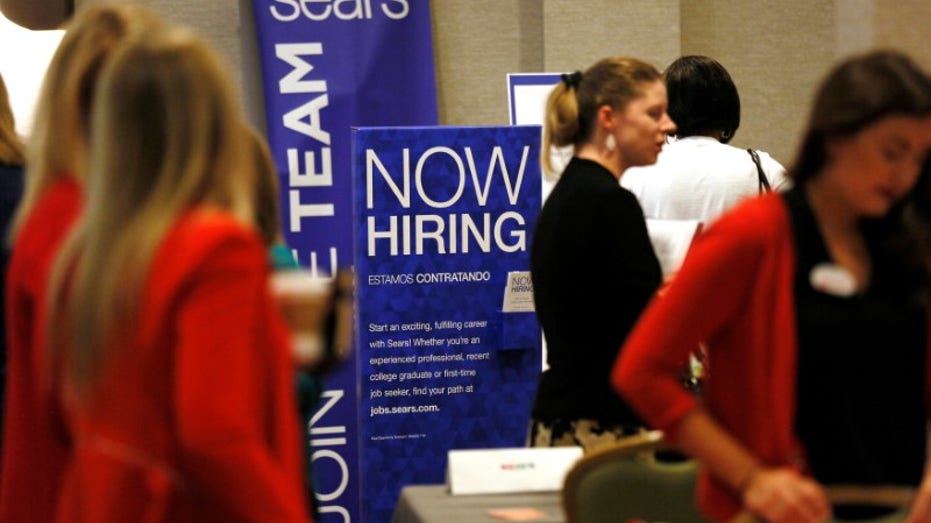Fed prepared to hike interest rates if inflation remains elevated, minutes show
Fed officials expressed concern about high inflation
Brainard confirmation for Fed vice chair not ‘a done deal’: Strategist
Quill Intelligence LLC CEO Danielle DiMartino Booth looks at possible roadblocks for Biden's nominee Lael Brainard.
Federal Reserve officials raised concern last month about hotter-than-expected inflation and signaled they could raise interest rates if consumer prices continue to soar.
Although Fed policymakers in November left interest rates at the rock-bottom level where they have sat since March 2020, when COVID-19 forced an unprecedented shutdown of the nation's economy, they voted unanimously to start gradually reducing the Fed's $120 billion in monthly bond purchases by $15 billion in November and December. Under that pace, the program would conclude by next June.
FED TO TAPER BOND PURCHASES BY $15B A MONTH AS IT EXITS PANDEMIC-ERA POLICY
But minutes released Wednesday from the U.S. central bank's Nov. 2-3 meeting show that some policymakers are worried that inflation pressures are worsening and hinted they are prepared to hike rates from near-zero if prices keep rising. While officials stressed a "patient" approach about incoming economic data, they also said they "not hesitate to take appropriate actions to address inflation pressures that posed risks to its longer-run price stability and employment objectives."

In this Sept. 30, 2021, file photo, Federal Reserve Chairman Jerome Powell testifies during a House Financial Services Committee hearing on Capitol Hill in Washington. (Sarah Silbiger/Pool Photo via AP, File / Associated Press)
"Various participants noted that the Committee should be prepared to adjust the pace of asset purchases and raise the target range for the federal funds rate sooner than participants currently anticipated if inflation continued to run higher than levels consistent with the Committee’s objectives," the minutes said.
New data released Wednesday morning shows the Personal Consumption Expenditures price index data – the Fed's preferred inflation measure – rose 4.1% in October from the previous year when excluding more-volatile measurements of food and energy, the fastest pace since January 1991.
Speaking to reporters after the FOMC's two-day meeting concluded earlier this month, Chair Jerome Powell declined to specify what circumstances would prompt the Fed to speed up its tapering timeline or to begin increasing the federal funds rate. The minutes noted, however, that some participants believed speeding up the reduction may be warranted in the case that the Fed needs to act to quell rising inflation.
"Some participants suggested that reducing the pace of net asset purchases by more than $15 billion each month could be warranted so that the Committee would be in a better position to make adjustments to the target range for the federal funds rate, particularly in light of inflation pressures," the minutes said.
Powell has maintained that policymakers will conclude the tapering process, which is on track to wrap up in June at the current pace, before raising interest rates from near-zero.
But traders are currently pricing in at least three rate hikes next year, with the probability following the release of the latest inflation data.

FILE PHOTO: Recruiters and job seekers are seen at a job fair in Golden, Colorado, June 7, 2017. REUTERS/Rick Wilking
Powell – who was tapped by President Biden to lead the Fed for another four years – pledged Monday to use the Fed's full arsenal to prevent faster inflation from becoming more permanent.
"We know that high inflation takes a toll on families, especially those less able to meet the higher cost of essentials like food housing and transportation," he said. "We'll use our tools to support economy and labor market and prevent higher inflation from becoming entrenched."
GET FOX BUSINESS ON THE GO BY CLICKING HERE
Still, Powell has maintained that the price spike has been driven by "supply and demand imbalances, bottlenecks, and a burst of inflation" that were caused by the "unprecedented reopening of the economy, along with the continuing effects of the pandemic." He has previously said that as the economy opens up and supply-chain disruptions dissipate, the inflation jump will abate.
Fed officials will release their latest economic projections at their next policy-setting meeting, which is slated to take place Dec. 14-15.





















